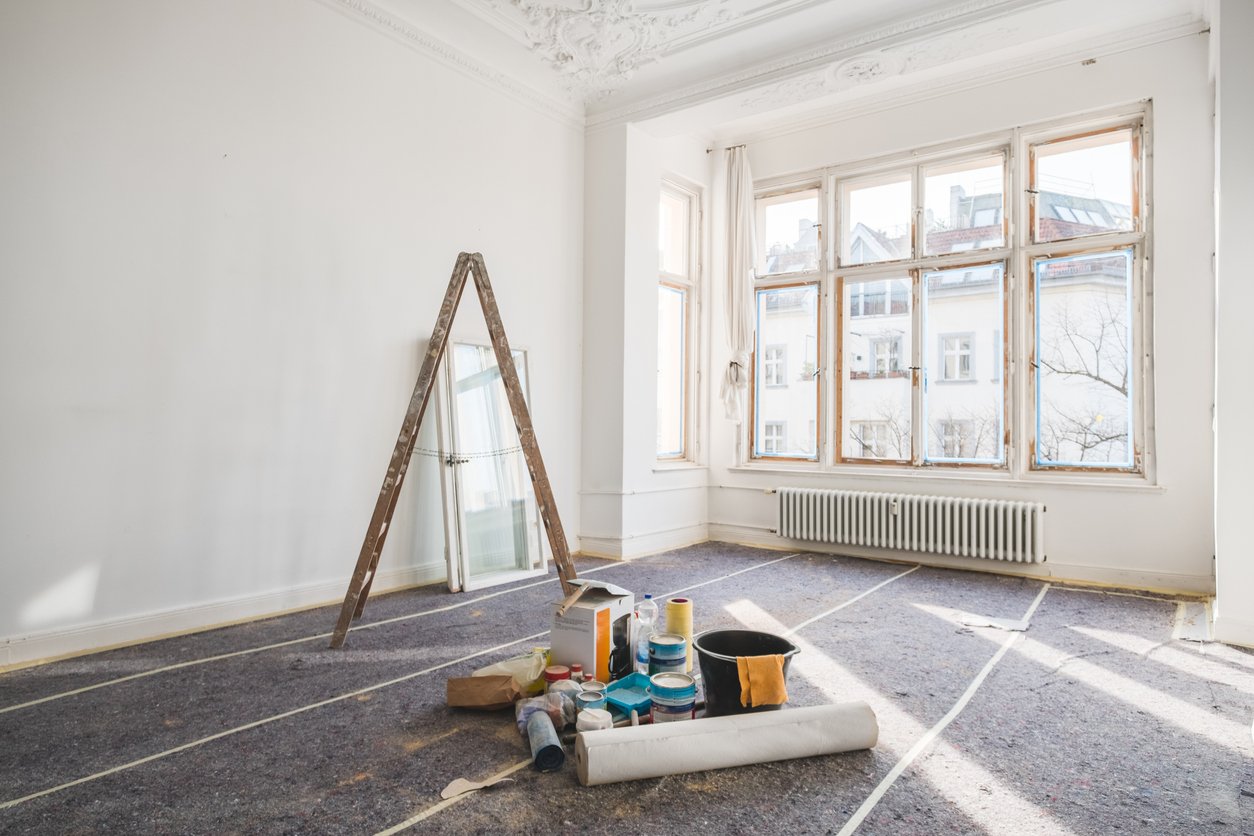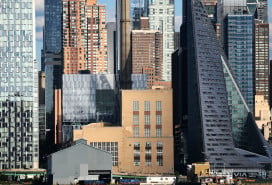Fewer buyers, steeper rents, and costlier renovations: How tariffs could impact NYC real estate
- Renovation projects will likely see higher costs, making apartments in need of work less attractive
- Uncertainty about tariffs has already pushed some buyers to hit pause on their apartment hunts
- Would-be-buyers who opt to rent create more competition for apartments and even higher rents

U.S. Customs and Border Protection collected $500 million in tariffs between April 5th and April 14th, according to CNBC.
iStock
The Trump administration’s new tariffs on foreign goods have rattled the stock market, raised the risk of a recession, and triggered at least one lawsuit. Now, they’re coming for New York City’s real estate market.
President Donald Trump imposed a broad 10 percent tariff on goods from most nations on April 5th, and has raised a tariff on imports from China to 245 percent as of Tuesday (though these numbers are changing almost daily). Those tariffs are likely to hike the cost of renovating in NYC, and uncertainty around tariffs—given the administration’s constantly shifting policy—could stunt NYC’s spring real estate sales market.
Would-be buyers who decide to rent instead could in turn, send already sky-high rents even higher in the summer months. “We could see a few more records,” said Jonathan Miller, president and CEO of appraisal firm Miller Samuel.
All told, tariffs are making New Yorkers nervous about the city’s real estate market. So if you’re hesitating before diving into that kitchen remodel or listing your apartment or house for sale, you’re not alone; even Miller seemed flabbergasted by the administration’s tariff policy.
“It’s so extreme and so absurd,” Miller said. “We're in an era of dumbness where economic theory doesn't seem to apply.”
Read on for a breakdown of how tariffs could impact your bathroom renovation, or the price you pay to buy or rent an apartment.

Renovation roulette
You might want to think twice before redoing your kitchen this year.
Construction material costs rose nationally in March, as suppliers began hiking prices in anticipation of new tariffs. Spencer Levine, president of developer RAL Companies, said that the vendors he works with on construction projects across the U.S. are warning him about coming price hikes.
“This is a tax on the consumer, because we're the ones that have to pay it in the end, to get the product into the country,” Levine said.
Higher costs of imported appliances, plumbing, and construction materials will increase the cost of a renovation. But Eli Moyal, chief operating officer and founder of the remodeling company Chapter, is optimistic that the increase won’t be huge.
“The majority of the cost is the labor,” Moyal said. “If you take in consideration the materials are going to be 15 percent overall more expensive, you're looking at single digits increase in renovations.”
Still, imported goods could get even more expensive in the coming months. Originally, President Trump had planned to hit certain countries with even higher tariffs—triggering a U.S. stock market plunge—but he delayed that plan for 90 days. Once those 90 days are up, “we just don't know where we're going to end up,” Moyal said.
The risk of future cost increases has Moyal encouraging customers to renovate now, before prices rise.
“If you plan to do it in the coming few months or maybe a year, do it now,” Moyal said. “Secure the materials and purchase now, because even when things settle down, we will eventually see some increases in prices.”
The buying and selling crunch
Spring is traditionally the height of buying and selling in NYC. Sellers paint their walls and spruce up their furniture to attract would-be-buyers. But given the uncertainty around tariffs, there may be fewer New Yorkers rolling up to an open house.
A few of broker Gerard Splendore’s clients have already hit pause on their search for a new place due to tariffs and stubbornly high interest rates, he said. And he’s not alone; some sellers are reportedly delaying listing their units for sale, according to Curbed.
Splendore, a broker at Coldwell Banker Warburg, expects a slower sales market this spring—at least among buyers who don’t desperately need a new place.
“People who have to move, who have leases that are expiring, families that are growing, or the big drivers of real estate—marriage, death, divorce—they will continue. But it's going to be dicey,” he said.
This newfound tariff turbulence comes just as buyers begin to creep back into the city’s real estate market, spurring higher prices. The median price for co-ops, condos, and one- to three-family houses in Brooklyn hit a new record of $995,000 in the first quarter of this year, according to the Elliman Report.
While NYC could still see strong spring sales, Miller expected tariffs to mute any significant uptick in transactions.
“I think it won't live up to its potential pre-tariff tantrum,” Miller said.
Buyers and sellers waiting for mortgage rates to drop are also likely to be disappointed. Tariffs, essentially “a tax paid by the American consumer” are likely to increase prices, bringing more inflation, “which reduces the likelihood of lower mortgage rates in the near term,” Miller said.
Mortgage rates could drop if tariffs kick inflation into high gear and plunge the U.S. economy into a recession, forcing the Federal Reserve to lower its benchmark interest rate, Miller said. But a recession is nothing to root for, he added.
“Who’s cheering for lower mortgage rates when hundreds of thousands of people could lose their jobs?” Miller asked. “That’s why rates would fall: to stimulate demand because the consumer becomes paralyzed.”
(More) rent hikes expected
If would-be-buyers decide to keep renting, its likely rents will rise based on demand as more New Yorkers compete for the city’s supply of rentals, Miller said.
Rents in the city have already been rising since the fall, as high interest rates have kept would-be-buyers in rentals. Manhattan and Brooklyn rents hit unusual highs in March and February—typically slow months for the rental market.
That upward trend, coupled with uncertainty around tariffs, could push rents even higher this summer, Miller said.
If “uncertainty about tariffs doesn't improve and sales don't rise as much as they were originally expected to, then that’s going to place unusual emphasis on the rental market,” Miller said.
“The bottom line is, this isn't helpful to the housing market, aside from it not being helpful to the economy,” he added.






























